Memory is an integral part of psychology. It helps us remember things like facts, events, and skills. In this guide, we will learn how memories are made and why we sometimes forget them.
I. Memory Formation: How Memories Are Made
Creating memories involves three main steps: encoding, storage, and retrieval. Each step is important for remembering things.
Encoding
Encoding is the first step in making a memory. It's how we take in information and change it into a form our brain can use. There are different ways we encode information:
- Visual Encoding: This is remembering things we see, like pictures.
- Acoustic Encoding: This is remembering sounds, like a song.
- Semantic Encoding: This is understanding the meaning of words and ideas.
Storage
Storage is how we keep information in our brains. There are two main types of storage:
- Short-Term Memory (STM): This holds information for a short time, usually around 20-30 seconds. It can hold about 7 items, like remembering a short list.
- Long-term memory (LTM): This stores information for a long time, like days or years. It includes facts and personal experiences.
Retrieval
Retrieval is when we remember stored information. It’s like looking for a file on a computer. Sometimes it’s easy to remember, and other times it’s hard. We can forget things due to decay (information fading) or interference (other information getting in the way).
II. Types of Memory: Different Ways We Remember
There are different types of memory, each for different things.
Sensory Memory
Sensory memory is very short and holds information from our senses. For example, when you see a flash of lightning, the image stays in your mind for a moment. This type of memory helps us process what we see, hear, and feel.
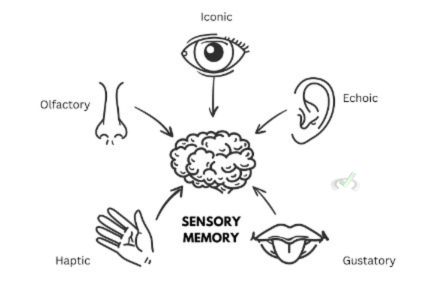
Short-Term Memory
Short-term memory, also called working memory, is like a temporary workspace. It holds the information we are using right now, like when you do math in your head. It doesn't last long and can only hold a few pieces of information at once.
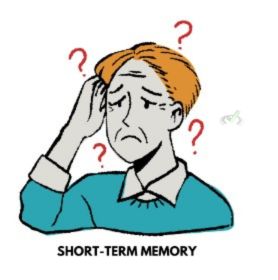
Long-Term Memory
Long-term memory stores information for a long time. It includes:
- Explicit Memory: This is a memory we can talk about, like facts and events. For example, knowing the capital of a country or remembering your last birthday.
- Implicit Memory: This is a memory for actions and skills we do without thinking, like riding a bike or typing.
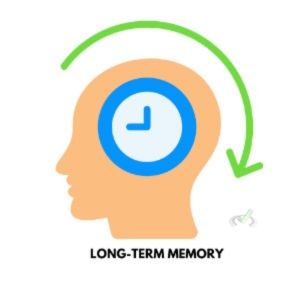
III. Memory Loss: Why We Forget
There are different reasons why we might forget things.
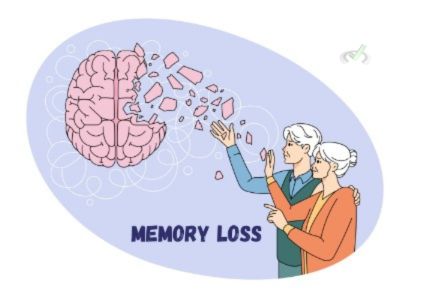
Decay Theory
Decay theory says memories fade over time if we don’t use them. It’s like a muscle that gets weak if we don’t exercise. For example, if you don’t use a new language you’ve learned, you might forget it.
Interference Theory
Interference theory says that other memories can block the ones we try to remember. There are two types:
- Proactive Interference: Old memories make it hard to learn new ones. For example, you might keep using an old phone number instead of a new one.
- Retroactive Interference: New memories make it hard to remember old ones. For example, learning a new address might make you forget your old one.
Amnesia
Amnesia is a serious form of memory loss. It can happen because of injury, illness, or trauma. There are two main types:
- Retrograde Amnesia: You forget things that happened before the event that caused the amnesia. For example, you might forget your past.
- Anterograde Amnesia: You can’t make new memories after the event. You remember your past but can’t remember new things.
IV. The Brain and Memory: How It All Works Together
Different parts of the brain help with memory.
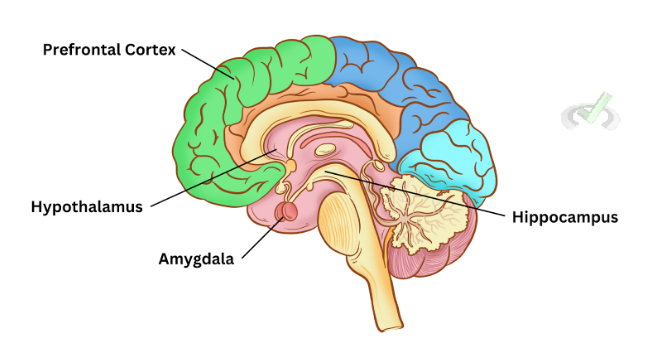
Hippocampus
The hippocampus helps us make new memories and move them to long-term storage. It's like a librarian organizing books (memories).
Amygdala
The amygdala helps us remember emotional memories, like a happy or scary event. It makes these memories more vivid.
Prefrontal Cortex
The prefrontal cortex helps with working memory and decision-making. It helps us plan and organize information.
V. Additional Concepts in Memory
Here are some more important ideas about memory:
Memory Consolidation
Memory consolidation is when a memory becomes stable after it is made. It helps move memories from short-term to long-term storage.
Context-Dependent and State-Dependent Memory
These ideas explain why we remember things better in the same context or mood as when we learned them. For example, studying in the same room where you will take a test can help you remember better.
Memory Distortion
Memory distortion happens when our memories change due to new information or our beliefs. Sometimes, we fill in gaps in our memories with things that might not be true.
Mnemonics
Mnemonics are tricks to help us remember things. For example, using acronyms or rhymes to remember lists or facts.
VI. Bridge/Overlap: Connecting Memory to Other Areas
Memory connects to many other areas in psychology and beyond, including topics covered on the MCAT.
Neurotransmitters and Memory
Neurotransmitters, like acetylcholine, are chemicals in the brain that help with memory. Acetylcholine is important for learning and memory, and low levels are linked to Alzheimer's disease.
Neuroplasticity
Neuroplasticity is the brain's ability to change and adapt. This is important for learning new skills and recovering from brain injuries.
Psychological Disorders
Memory problems can be a part of mental health issues. For example, people with depression might have trouble remembering positive events. Meanwhile, those with PTSD might have distressing memories.
Research Methods in Psychology
Psychologists study memory using experiments, case studies, and brain scans. These methods help us learn how memory works and what parts of the brain are involved.
VII. Wrap Up/Key Terms
Let's review the key points:
- Encoding: Taking in and changing information into a form we can use.
- Storage: Keeping information in our brain, either short-term or long-term.
- Retrieval: Remembering stored information.
- Sensory Memory: Very short memory from our senses.
- Short-Term Memory: Temporary memory for current information.
- Long-Term Memory: Long-lasting memory for facts, events, and skills.
- Explicit Memory: Memory we can talk about, like facts and events.
- Implicit Memory: Memory for actions and skills we do automatically.
- Decay Theory: Memories fade over time if not used.
- Interference Theory: Other memories can block the ones we try to remember.
- Amnesia: Serious memory loss.
- Memory Consolidation: Stabilizing and moving memories to long-term storage.
- Context-Dependent and State-Dependent Memory: Better recall in the same context or mood as learning.
- Memory Distortion: Memories changing over time.
- Mnemonics: Tricks to help remember things.
VIII. Practice
Test your understanding with these questions:
Sample Practice Question 1
What does the hippocampus do?
A. It stores emotional memories.
B. It helps make new memories and move them to long-term storage.
C. It is involved in working memory.
D. It is involved in working memory.
Ans. C
It helps make new memories and move them to long-term storage.
Sample Practice Question 2
What is proactive interference?
A. When new memories block old ones.
B. When old memories block new ones.
C. The process of forgetting due to decay.
D. The inability to form new memories.
Ans. B
When old memories block new ones.

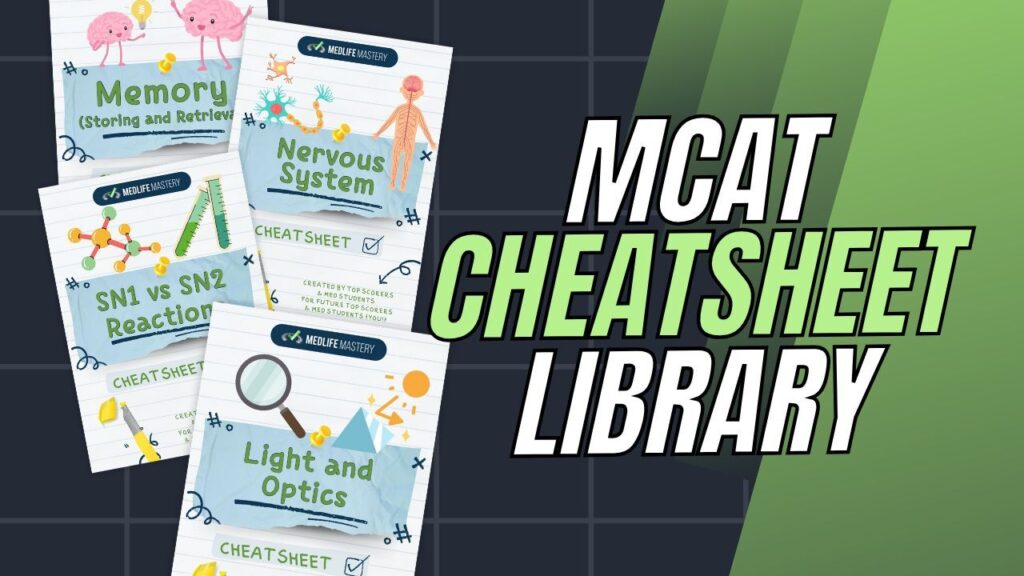
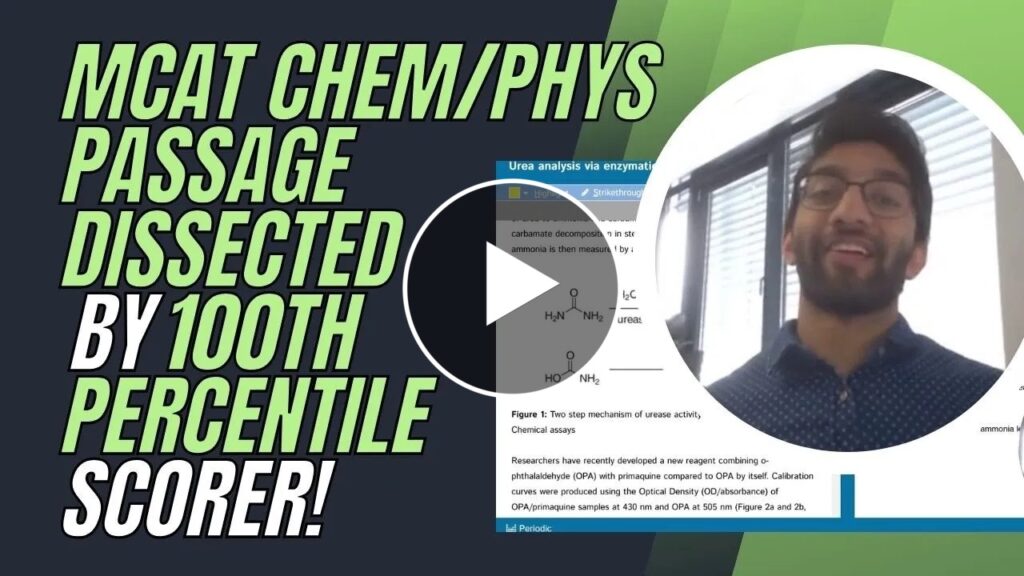
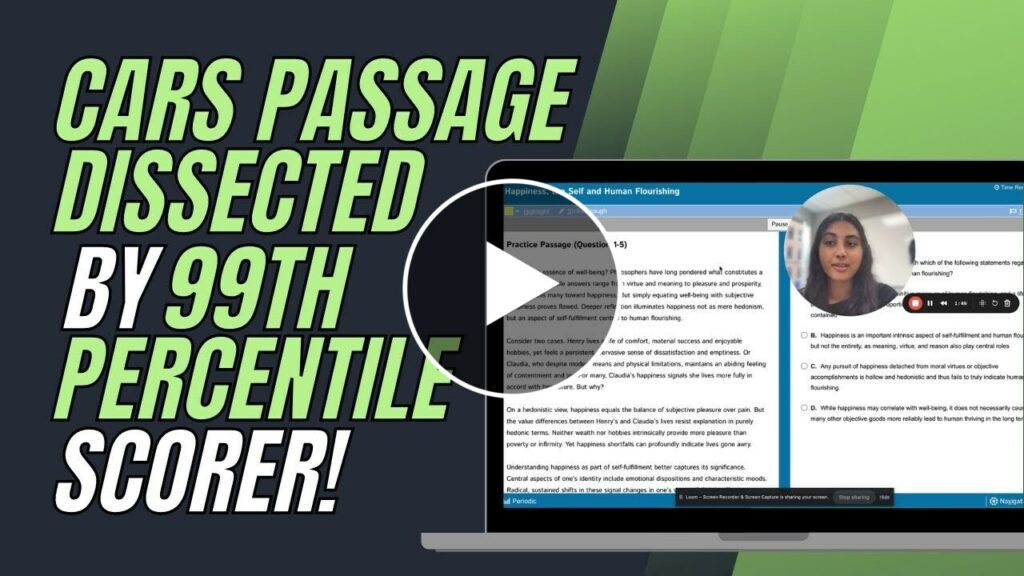
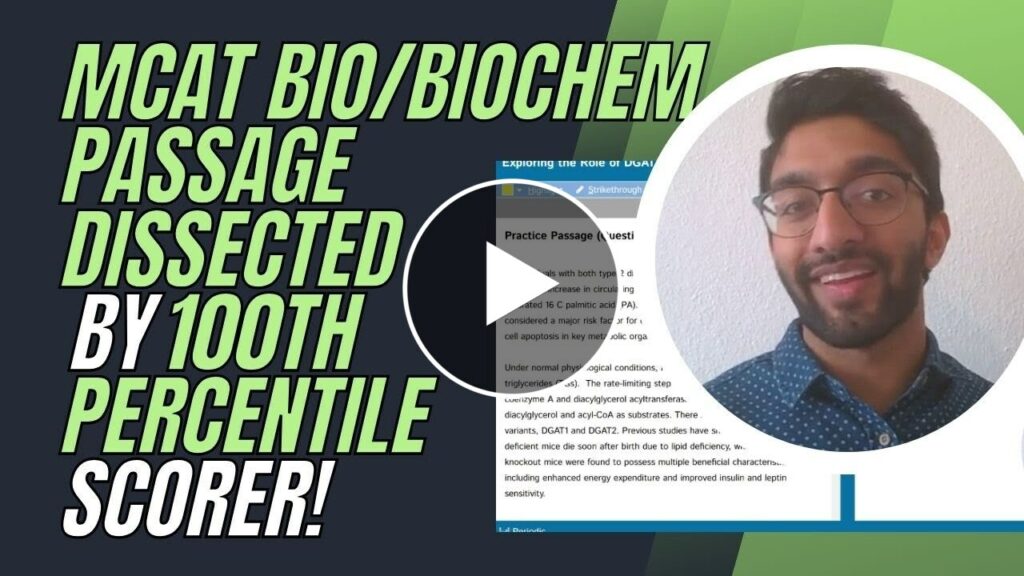
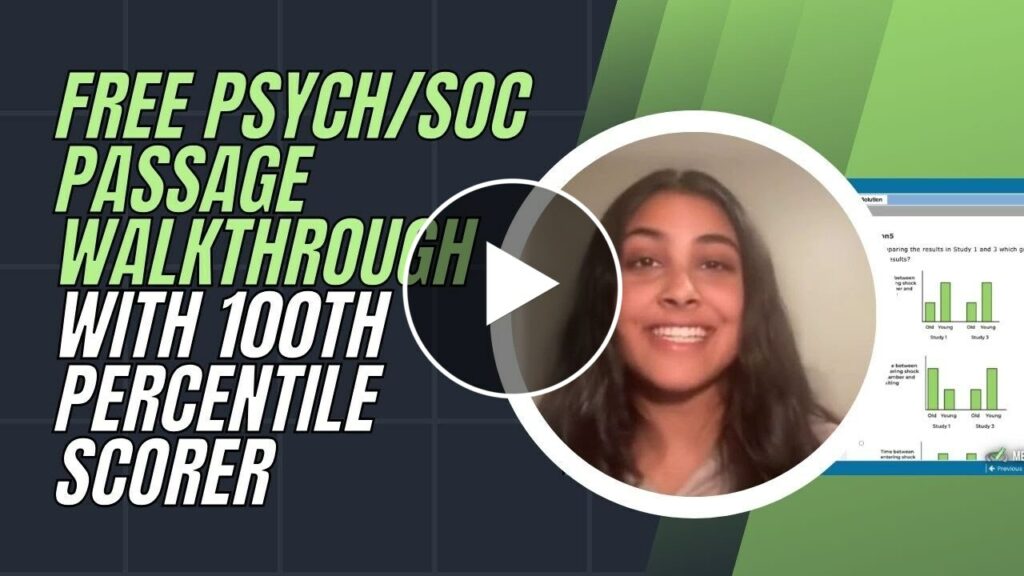

 To help you achieve your goal MCAT score, we take turns hosting these
To help you achieve your goal MCAT score, we take turns hosting these 





















 reviews on TrustPilot
reviews on TrustPilot